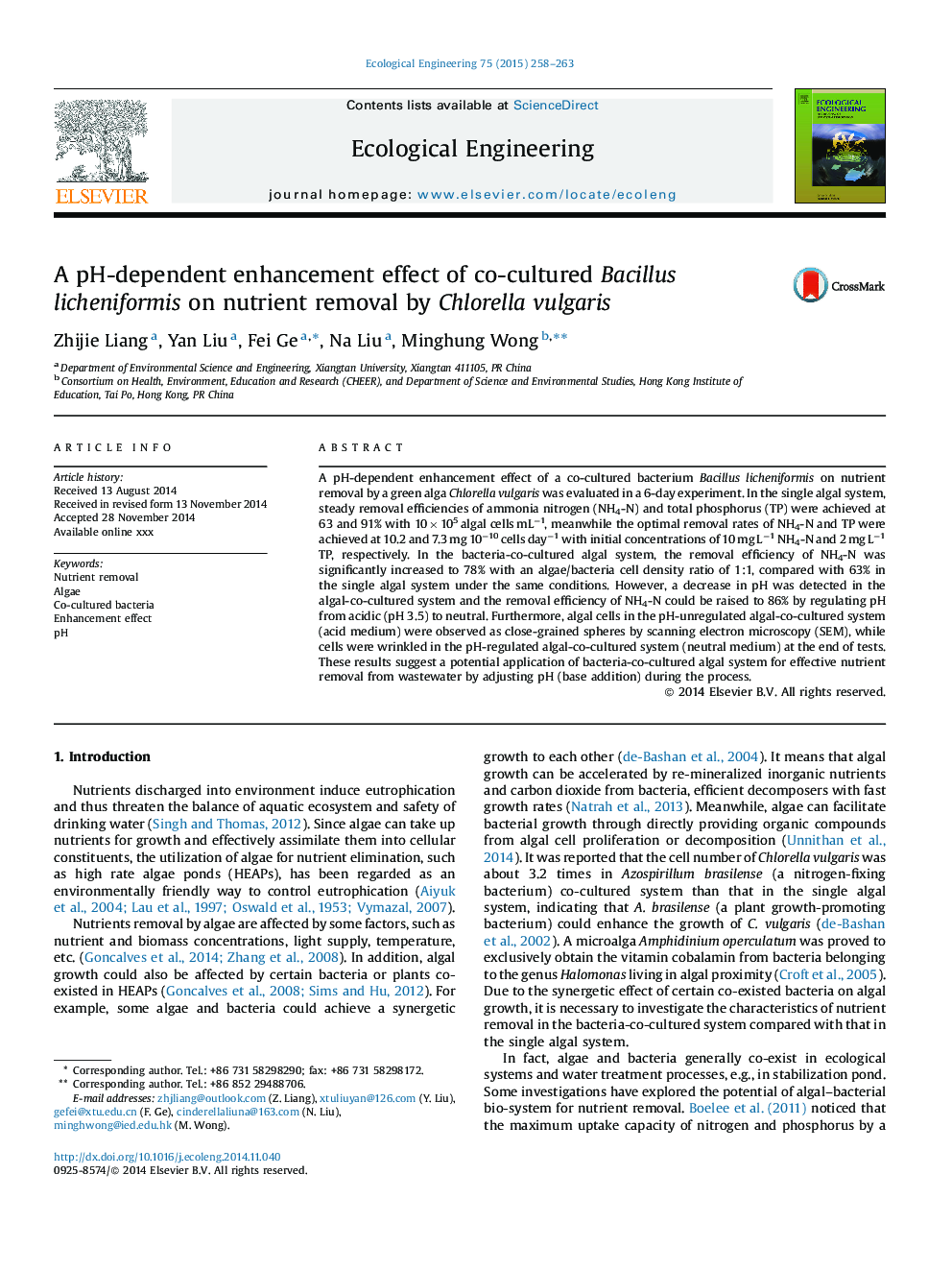| Article ID | Journal | Published Year | Pages | File Type |
|---|---|---|---|---|
| 6301714 | Ecological Engineering | 2015 | 6 Pages |
Abstract
A pH-dependent enhancement effect of a co-cultured bacterium Bacillus licheniformis on nutrient removal by a green alga Chlorella vulgaris was evaluated in a 6-day experiment. In the single algal system, steady removal efficiencies of ammonia nitrogen (NH4-N) and total phosphorus (TP) were achieved at 63 and 91% with 10 Ã 105 algal cells mLâ1, meanwhile the optimal removal rates of NH4-N and TP were achieved at 10.2 and 7.3 mg 10â10 cells dayâ1 with initial concentrations of 10 mg Lâ1 NH4-N and 2 mg Lâ1 TP, respectively. In the bacteria-co-cultured algal system, the removal efficiency of NH4-N was significantly increased to 78% with an algae/bacteria cell density ratio of 1:1, compared with 63% in the single algal system under the same conditions. However, a decrease in pH was detected in the algal-co-cultured system and the removal efficiency of NH4-N could be raised to 86% by regulating pH from acidic (pH 3.5) to neutral. Furthermore, algal cells in the pH-unregulated algal-co-cultured system (acid medium) were observed as close-grained spheres by scanning electron microscopy (SEM), while cells were wrinkled in the pH-regulated algal-co-cultured system (neutral medium) at the end of tests. These results suggest a potential application of bacteria-co-cultured algal system for effective nutrient removal from wastewater by adjusting pH (base addition) during the process.
Related Topics
Life Sciences
Agricultural and Biological Sciences
Ecology, Evolution, Behavior and Systematics
Authors
Zhijie Liang, Yan Liu, Fei Ge, Na Liu, Minghung Wong,
